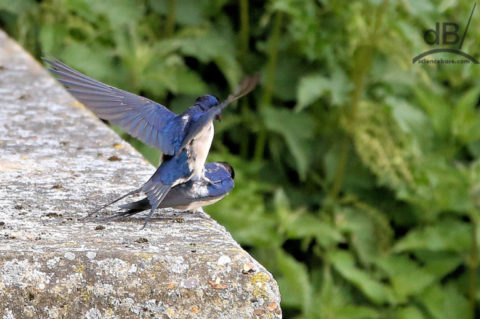Older male birds father more illegitimate offspring than younger birds, it seems. When female birds have chicks as the result of an “extra-marital” fling, the fathers are almost always older males. Now, scientists at Imperial College London think they know why.

Many birds form social pair bonds, some of which last a lifetime, but they may also have “illegitimate” offspring. Extra-marital copulation in sparrows seems to favour paternity of older males and there were two possible explanations: older males are better at coercing females into extra-pair affairs, this is the male manipulation hypothesis or that females solicit more sex from older males than from younger males, the female choice hypothesis.
Sparrows are socially monogamous but sexually promiscuous, staying with one partner for the security of raising chicks, but with the males not necessarily raising their own chicks. The team led by the IC scientists observed more than 450 mating attempts by males, and found that older males did not try to make females cheat any more often than younger males, which throws the male manipulation hypothesis into doubt. Instead, they observed that successful affairs were more often solicited by females. However, the females did not choose older males more often than younger males, suggesting the female choice hypothesis may also be wrong.

Team member Antje Girndt explains, “There is a difference between what we observe and what the outcome is: we didn’t observe older males cheating more often than younger males, but they do father more offspring. This suggests there is another factor at work, such as older males having more competitive sperm.” Females can store sperm for weeks before allowing it to fertilise their eggs.

“We found that there is likely to be a biological effect, rather than a behavioural one, for why older males are more successful at siring illegitimate children,” explains research leader Julia Schroeder. “It has been thought that females might choose older males as they are more ‘genetically fit’, but our research casts some doubt on this.”